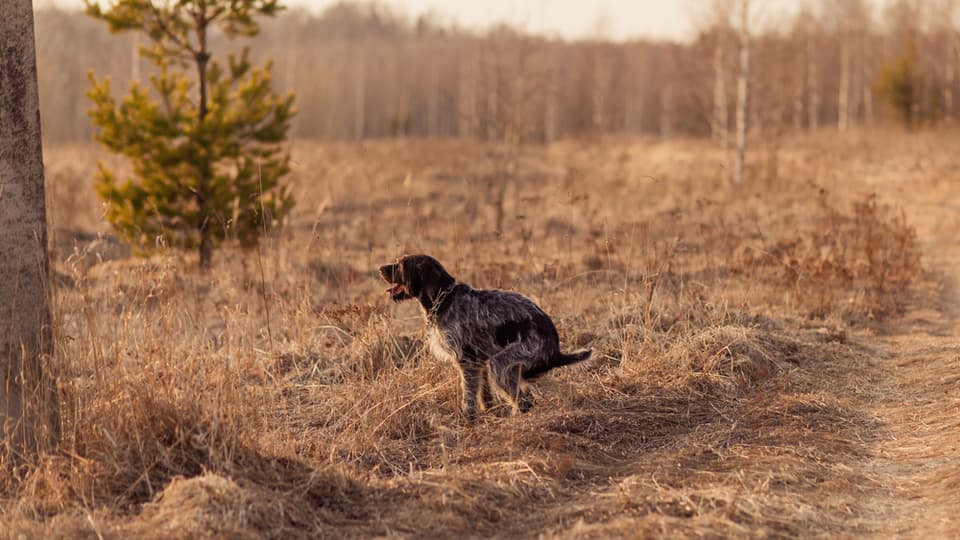Constipation is one of the most common digestive problems among animals and can affect dogs of all ages, lifestyles, and breeds.
While the difficulty to have normal bowel movements might be common in canines, it should never be ignored. If left untreated, your dog's constipation can lead to more serious health issues, such as loss of appetite, vomiting, and lethargy.
Pro tip: Pet insurance can help protect your beloved pet when health problems strike. Bear in mind that pet health insurance doesn’t cover pre-existing conditions, so be sure to enroll before any issues arise.
Table of Contents:
- What causes constipation in dogs?
- How to spot constipation in dogs symptoms?
- How to help constipation in a dog?
- How to treat constipation in dogs?
- How to prevent constipation in dogs?
- Key Takeaways
What causes constipation in dogs?
Constipation in dogs can result from various factors. Some of the most common reasons include dehydration or electrolyte imbalances, lack of exercise, too little or too much dietary fiber in his diet, or sudden changes in diet.
Very often, constipation is caused by foreign body obstruction (such as pieces of toys, gravel, dirt, grass, rocks, hair, cloth, plants, etc.) or obstruction due to abnormal tissue growth (e.g. congenital malformation, polyp, or tumor).
In some cases, constipation can be caused by other health issues, such as enlarged prostate, gastrointestinal motility disorder, central nervous system disorders, orthopedic problems that cause pain when the pet positions to defecate, spinal injuries and diseases, trauma to the pelvis, metabolic diseases like kidney issues and hypothyroidism, diseases of the colon, hormonal diseases like hyperparathyroidism and hypothyroidism, megacolon (enlarged colon), or stress, fear, and psychological problems.
Some medications can make your dog constipated. The list includes diuretics, opiates, antihistamines, certain cancer drugs, and some antacids
Other common causes for constipation in dogs include:
- Abscessed or blocked anal sacs
- Sedentary lifestyle or immobility
- Matted hair covering the anus resulting from obesity or lack of grooming
- Excessive self-grooming, which can cause big amounts of hair to collect in the stool
- Medical procedures (surgeries) and the drugs administered during them
Sometimes, constipation can be mild and go away on its own but in other cases, it can be more serious and indicate an underlying medical condition.
Note that constipation can occur in any canine, but senior dogs might suffer more often from difficult or infrequent bowel movements.
 (Image source: Dog Time)
(Image source: Dog Time)
How to spot constipation in dogs symptoms?
If your four-legged friend suffers from constipation, you might notice them straining when trying to defecate. If they manage to defecate, the stool will probably be dry, hard, and pebble-like.
Be sure to talk to your vet if you notice the following dog constipation symptoms:
- Tense abdomen
- Two or more days without a bowel movement
- Distress or pain when trying to defecate (standing with a hunched posture or crying)
- Frequent squatting without results, circling or dragging the bottom along the floor (scooting)
- Inability or difficulty to urinate
- Passing mucus or abbreviated liquid stool after straining
- Passing blood without stool or blood in the stool
If left untreated, constipation may lead to obstipation, a permanent loss of normal function of the large intestine. In this state, the colon contains an uncomfortably large amount of feces, resulting in unproductive straining, appetite loss, vomiting, and lethargy.
How to help constipation in a dog?
When it comes to your pup’s health, you should always consult with your vet. However, if your pooch suffers from mild constipation, there are home remedies for constipation in dogs that can provide relief and help them start passing stool normally again:
-
Hydration is usually crucial when it comes to alleviating constipation. If your four-legged pal usually consumes dry food, try feeding them canned food for a change. You can also add low-sodium chicken broth or water to their food. Some vets may also recommend milk for constipation in dogs because it can help soften their stool.
-
Physical activity could help your dog’s bowels to get active as well. Take your canine companion for a walk or provide another type of exercise, depending on their health and endurance. Regular physical activity is also an excellent way to prevent constipation in older canines or those prone to constipation.
-
High-fiber diet. Providing the correct level of dietary fiber can help normalize intestinal motility and alleviate constipation. Food and herbs like wheat bran, ginger, olive oil, sweet potatoes, green beans, or canned pumpkin can help. Canned pumpkin is often recommended for constipated dogs as it contains high levels of both moisture and fiber and, most importantly, pups like its taste, so they’ll eat it without a problem. However, feeding too little or too much fiber can worsen constipation, so be sure to consult your vet for dietary advice. In addition, try to keep a regular feeding schedule (2-3 meals a day).
If your pet has difficulty passing stool, make sure they have not been having diarrhea. The urgency to continue defecating is very common after a dog has diarrhea. If that’s the case, the above-mentioned home methods for treating constipation will only make things worse.
Don’t try to administer an enema at home unless instructed by your vet. If done inappropriately, there could be risks for injury or toxicity.
Once your dog manages to pass stool, the first bowel movement might contain hard and dry stool followed by softer stools for 1-2 days. If your pet develops diarrhea or any other health problems, contact your veterinarian right away.
 (Image source: Purina UK)
(Image source: Purina UK)
How to treat constipation in dogs?
If you’ve tried constipation in dogs home remedies, but their condition still hasn’t improved within a day, it's time to visit your vet.
Make sure to tell your vet when was the last time your pet had a normal bowel movement and provide other information such as stool consistency and color, any changes in their diet, pain or straining while trying to go, injuries, drug treatments, or non-food items your dog might have ingested. You should also let your vet know if there are any other signs of discomfort or distress, especially lethargy, bloated appearance, or vomiting.
The vet will ask about your dog’s health history and perform a physical exam, including rectal exam and/or abdominal palpation. The vet might also recommend X-rays of the abdominal area to determine how severe the constipation is.
Depending on the exam results and your pet’s age, the vet might recommend blood work and urinalysis to assess blood cell counts, organ function, and electrolyte balance, as well as a barium enema, colonoscopy, ultrasound, endoscopy (inserting a tube with a small video camera into your dog’s digestive tract), or neurological exam.
If constipation is confirmed, the vet might recommend an enema in order to remove the stool stuck in the colon and subcutaneous fluids to hydrate your furry friend. Depending on what’s causing your pet’s constipation, your veterinarian might also recommend one or a combination of the following treatments:
- Adding dietary fiber to your pup’s diet with foods like wheat bran or products like Metamucil
- A stool softener or other laxative agent
- Medication to increase the contractile strength of the large intestine.
As noted, constipation is most often caused by eating unfamiliar food or swallowing a foreign object and further medical intervention is not necessary. However, some canines might require lifelong treatment in order to maintain normal bowel movements.
In the majority of cases, constipated dogs don’t need to be hospitalized. The treatments are usually done in a few hours and the patient can go home right after. However, if your four-legged family member is severely dehydrated or has another medical problem, they might need IV fluids or other treatments that require them to be admitted to the hospital.
More extreme cases might require medical interventions such as medication to activate normal colon function or manual removal of impacted feces. Surgery might be needed in very rare cases, usually for megacolon - extreme dilatation of the colon.
Pro tip: Selecting the right pet insurance plan for your pet is an important decision, but choosing whether to pay extra for things like behavioral therapy, prescription medications, or exam fees shouldn’t be. Personalizing your policy will ensure that your pooch is covered for the unexpected.
How to prevent constipation in dogs?
Here are a few steps you can take to prevent your beloved pet from getting constipated.
- Feed them a diet that’s rich in dietary fiber. Consult your veterinarian to make sure your dog eats enough fiber.
- Hydration is vital to your pup's digestive health. Make sure your pooch has access to fresh water at all times, especially after exercise or in hot weather.
- Ensure that your canine companion gets enough exercise. Cold weather might urge you to cut daily walks shorter, but this might have a negative impact on your dog’s digestion.
If your pet is prone to dog constipation, check their stool on a regular basis so you know when something changes.
Key Takeaways
- Canine constipation is the most common health problem associated with a dog’s digestive system.
- The symptoms of constipation in dogs include dry and hard stools, as well as straining when trying to make a bowel movement.
- Constipation in dogs relief can be found through several home remedies, but it may be possible to prevent the problem by promoting a healthy life.
- Call your vet if you believe it’s been at least 48 hours since your pet had a bowel movement.
